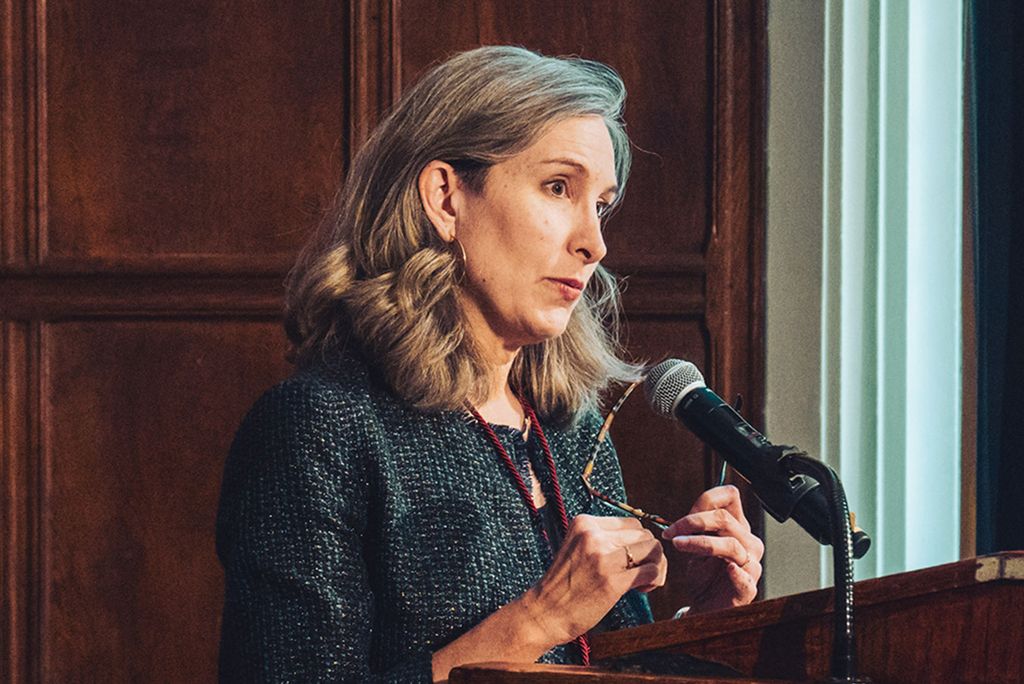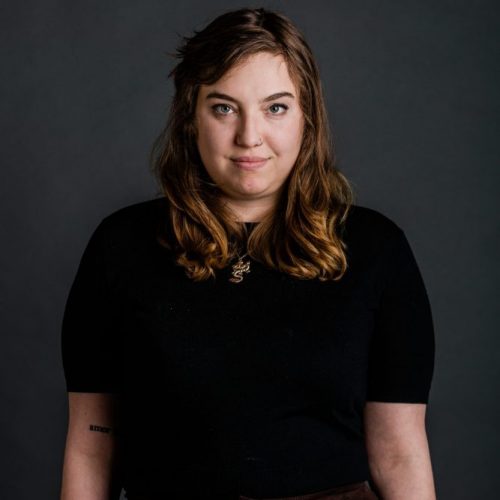My Big Idea: An App That Helps Journalists Find Diverse, Reliable Sources
Nick Toso (CGS’04, Pardee’06) created Rolli, an AI-powered database of experts

Journalist Nick Toso (CGS’04, Pardee’06) remembers the struggle to find qualified expert sources on tight deadlines as “the worst-kept secret in news.” Photos courtesy of Rolli
An App That Helps Journalists Find Diverse, Reliable Sources
Nick Toso (CGS’04, Pardee’06) created Rolli, an AI-powered database of experts
In our My Big Idea series, we bring you interviews with BU alums and other members of the University community who have launched a business, built a new product, or solved problems big and small. We ask them how they got the idea, what were their biggest stumbling blocks, and what’s next for their big idea.
When Nick Toso worked at CNN En Español in Washington, D.C., he did pretty much every job in the newsroom, eventually becoming bureau chief.
“When you’re on the ground floor like that, you see a lot of the inefficiencies magnified,” says Toso (CGS’04, Pardee’06). One of the biggest problems he observed during his 10 years there was finding qualified subject matter experts under increasingly tight deadlines. “We were just calling the same folks over and over, because we knew that they would come on the show,” he says.
Eventually, Toso figured he could do something to change that. In 2020, he launched Rolli (think “a digital Rolodex”), an online database of vetted expert sources that uses an AI-powered search algorithm. It’s designed to not only make a journalist’s job easier, he says, but also to increase the visibility of experts across a variety of disciplines whose work might not otherwise get noticed.
“When I tell people about Rolli, they say, ‘If this existed years ago, we would’ve been using it all along,’” he says. “We’re essentially doing the job that a journalist would do and developing those sources. We’re just doing it ahead of time.”
Rolli is free for journalists with valid press credentials. They can use the AI-powered search to find qualified experts to speak on topics that range from the global economy to social media trends to climate change. Experts create an account on the site (expert accounts begin at $39 a month), list their relevant curriculum vitae, contact info, availability, and affiliated institutions, such as universities, think tanks, and government entities. Then they wait for journalists to contact them via the app.
Toso hopes that the greatest beneficiary of Rolli will be the news-reading public. “We’re in a critical election year, and the public needs access to reliable information to make informed decisions,” he says, “which is why we make sure that all the experts that join Rolli pass a thorough vetting process.”
The app also features award-winning tools to track disinformation, such as information or posts that have been artificially boosted by bots.
“The platform will continue to evolve as the needs of journalists evolve,” Toso says.
Bostonia spoke with Toso about how Rolli disrupts traditional newsgathering, leverages AI as a tool to help journalists, and ultimately, brings a sense of community back to the newsroom.
Q&A
With Nick Toso
Bostonia: When you were at CNN, which factors made it difficult to find diverse qualified voices?
Toso: Around 2010, folks were starting to get their news online a lot faster; they were consuming in 30 seconds a story that you could spend a whole day or two working on. You didn’t have the time or luxury to send a crew of 20 people on location to do a traditional news-gathering. You had to invite folks on set to comment, and you had to do it quickly. You don’t have time to do preinterviews, search for hours, or ask for recommendations. You turn to your phone or your colleagues’ Rolodex to try to find the most qualified person.
Bostonia: When was your “aha” moment that led you to develop Rolli?
Toso: Everyone [in the news industry] I spoke to basically said, “This is a really big problem for me too.” This problem was kind of the worst-kept secret in news. At the other end, journalists’ inboxes are swamped, and if you send us a pitch email, we might not be able to read it. I saw that impacting the quality of news content all around the country, and as a result, impacting the information that the public had access to. There are a lot of amazing experts out there, but they’re not paying for PR or SEO optimization. They’re just busy being experts, doing research, and moving their industries forward. Around 2017, I resigned from my position at CNN, and I started my MBA at the University of Southern California in order to create a sustainable business model around this idea.
Bostonia: Tell us about your team.
Toso: The cofounder of the company is my wife, Catalina Villegas, who’s also an anchor here in Los Angeles. This is something that’s close to our hearts—it’s our personal mission, our professional mission. We have other journalists on the team: our director of university partnerships is a 35-year veteran journalism professor from Mizzou [University of Missouri]. We’ve paired a team of journalists with a team of very seasoned technical developers, and we’ve combined these two worlds. The journalist side of Rolli is informing the technical side on how things need to be built for real journalist workflows. In order to create a piece of technology that actually works for journalists, you need journalists guiding the ethics and principles of the technology.
Bostonia: How has that collaboration played out in practice?
Toso: For years, I would get pitches and didn’t know where they were coming from. I realized that some companies were essentially selling my email to parties that wanted to pitch me. We didn’t think that was right, and honestly, it made it harder for us to work. So there’s no pitching in Rolli, there’s no spam, and we don’t sell journalists’ contact information. Rolli was created to empower journalists and not treat them as a product. We’re also in a time where disinformation is on the rise and it’s getting harder and harder to find qualified subject matter experts. We use a seven-step vetting process, and then a little bit more, to make sure that these experts are in good standing.

Bostonia: What made you decide to leverage AI to benefit journalists?
When we started the platform, we were really limited by keywords. If you were searching for an expert in Bitcoin, for example, but the expert indicates that they’re an expert in blockchain, they’re not going to show up in a search for “Bitcoin.” For the first few years of Rolli, we were developing our search algorithm, but it wasn’t until AI and these large language models came along that we were able to understand user intent. These models are always being refined, and we’ve trained our model to correct a lot of the biases that might appear when you’re trying to find an expert. For example, around the time of COVID, only 5 percent of STEM experts quoted in major media were women. So if you have a language model that’s been trained on that historical internet data, it’s going to think that STEM experts are typically men. And that’s not the work that journalists are trying to do. We’re not trying to filter people out.
Bostonia: It sounds like this platform also presents a huge advantage to sources.
Absolutely. It’s impossible for somebody in a media office at a university to know what a journalist was talking about in their editorial meeting that morning. If a pitch works, it’s because you got lucky. We speak to a lot of organizations that are very frustrated with cold email pitching, so Rolli flips the model on its head and says, “Instead of spending all your time pitching, place them on Rolli and journalists will find you.” This means organizations can ultimately promote more folks, which encourages more diversity, inclusion, and access in the media. If you only have one or two shots to pitch somebody, you’re going to pitch your media superstar. But we’re able to level the playing field.
Bostonia: When did you realize you were making a difference?
We launched Rolli in February of 2020. We saw journalists getting sent home from their newsrooms and working in isolation from their colleagues. We saw journalists using Rolli to mimic that newsroom workflow of calling your colleagues for help. We had journalists logging into Rolli, searching for COVID experts, and then emailing us to say, “You should include this expert.” That gave us chills, because for a long time, it’s been said that a journalist is only as good as their contacts. We always felt that journalists wanted to keep their best contacts close to their chest. We’re now seeing that there’s no scarcity of experts, and journalists will actually help other journalists. It was changing this mentality of scarcity, and it’s the public that really benefits from reliable information.


Comments & Discussion
Boston University moderates comments to facilitate an informed, substantive, civil conversation. Abusive, profane, self-promotional, misleading, incoherent or off-topic comments will be rejected. Moderators are staffed during regular business hours (EST) and can only accept comments written in English. Statistics or facts must include a citation or a link to the citation.